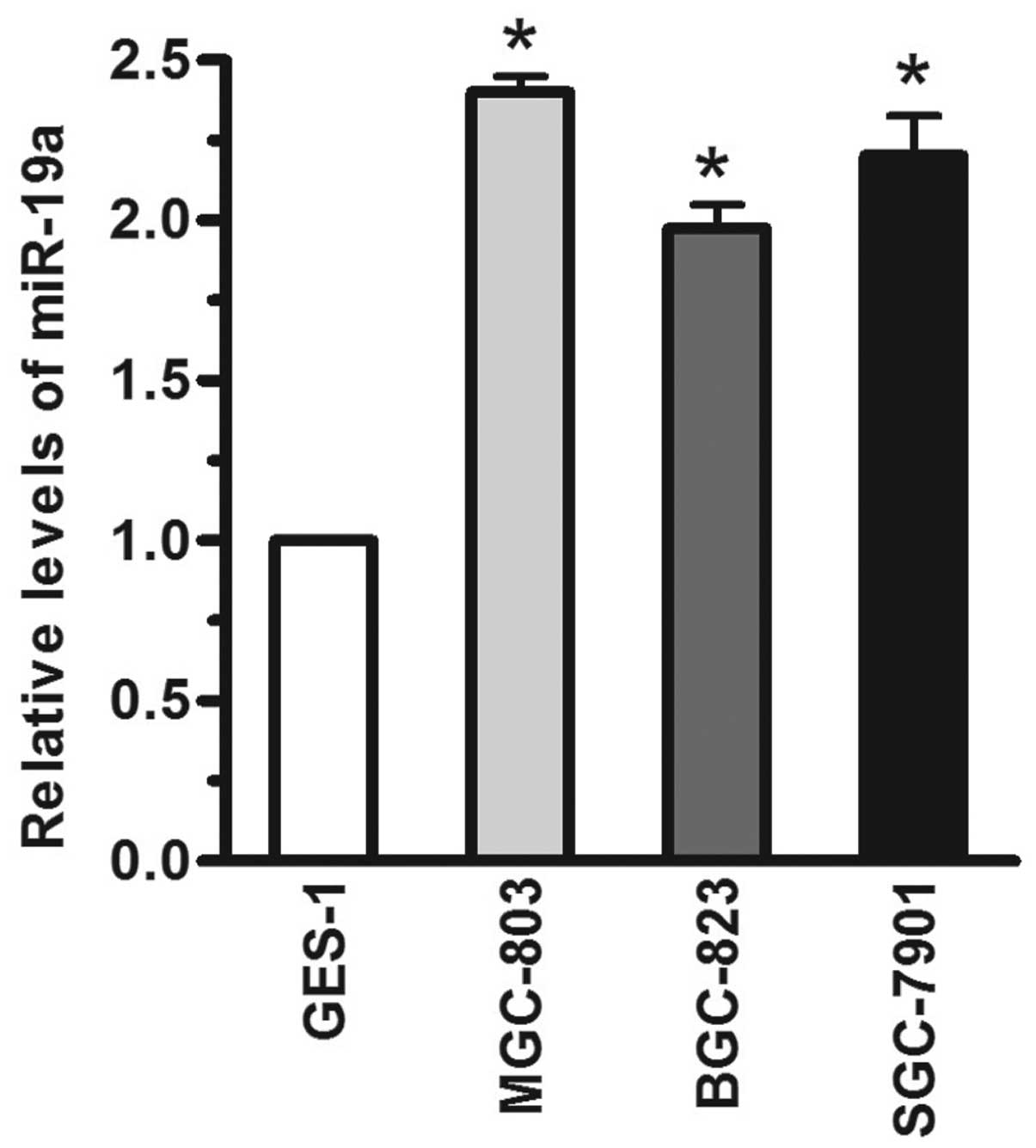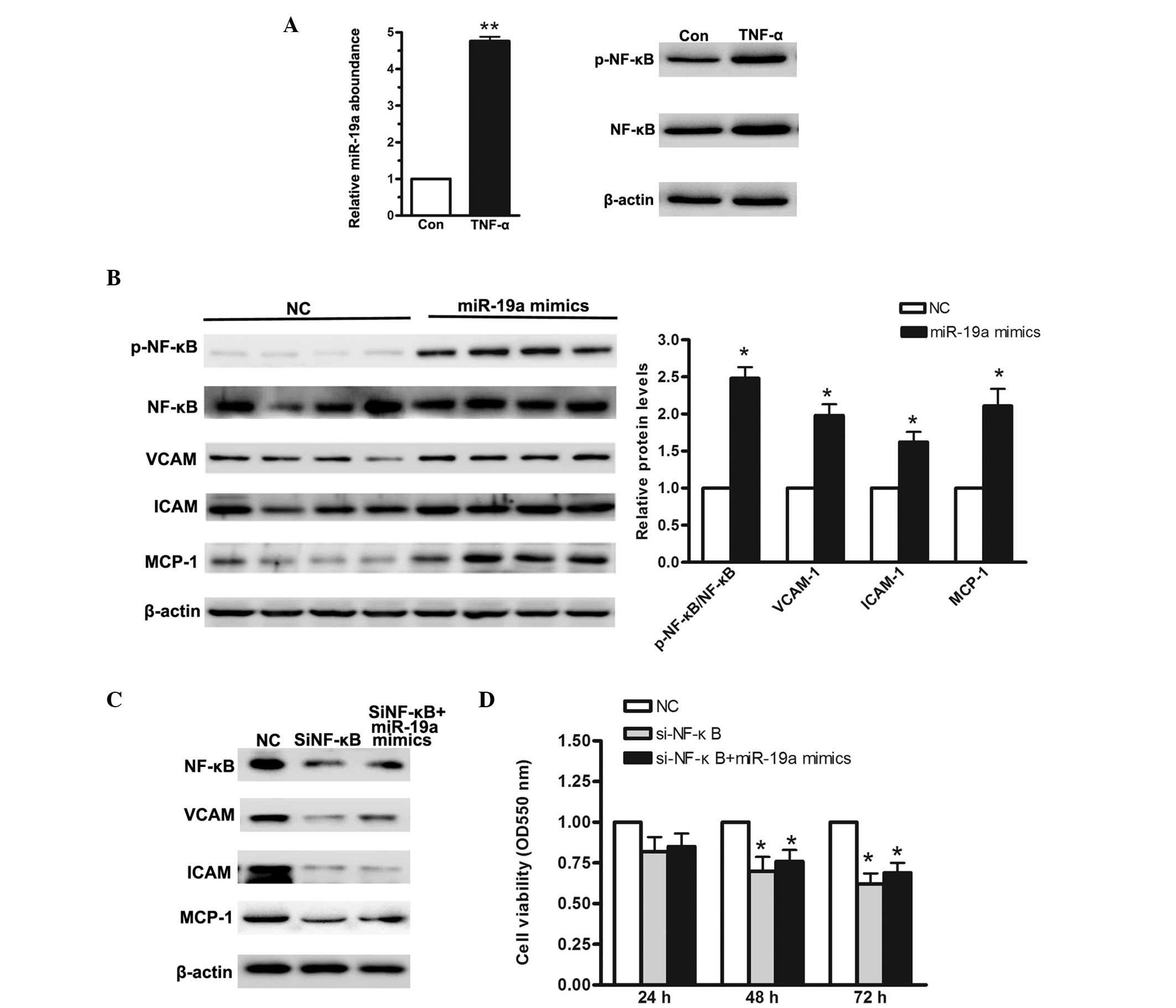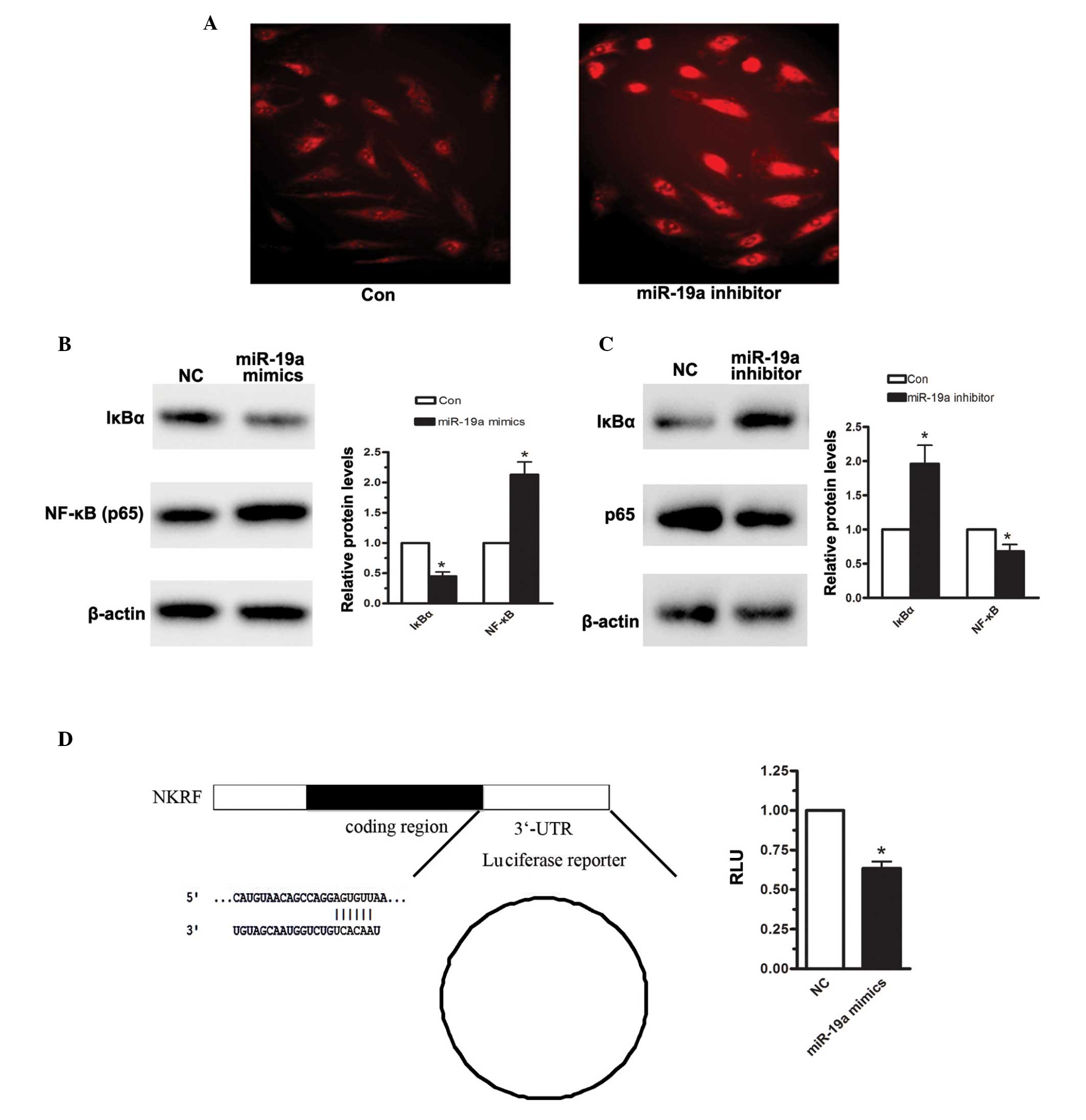|
1
|
Zhang W, Ha M, Gong Y, Xu Y, Dong N and
Yuan Y: Allicin induces apoptosis in gastric cancer cells through
activation of both extrinsic and intrinsic pathways. Oncol Rep.
24:1585–1592. 2010.PubMed/NCBI
|
|
2
|
Ha MW and Yuan Y: Allicin induced cell
cycle arrest in human gastric cancer cell lines. Zhonghua Zhong Liu
Za Zhi. 26:585–589. 2004.In Chinese.
|
|
3
|
Park SY, Cho SJ, Kwon HC, Lee KR, Rhee DK
and Pyo S: Caspase-independent cell death by allicin in human
epithelial carcinoma cells: Involvement of PKA. Cancer Lett.
224:123–132. 2005. View Article : Google Scholar : PubMed/NCBI
|
|
4
|
Zhang YW, Eom SY, Yim DH, Song YJ, Yun HY,
Park JS, Youn SJ, Kim BS, Kim YD and Kim H: Evaluation of the
relationship between dietary factors, CagA-positive Helicobacter
pylori infection and RUNX3 promoter hypermethylation in gastric
cancer tissue. World J Gastroenterol. 19:1778–1787. 2013.
View Article : Google Scholar : PubMed/NCBI
|
|
5
|
Lee J, Kim KM, Kang WK and Ou SH:
Innovative personalized medicine in gastric cancer: time to move
forward. Clin Genet. 86:37–43. 2014. View Article : Google Scholar : PubMed/NCBI
|
|
6
|
Sato T, Kikuchi Y, Saito T, Hirano S and
Kouzuma T: Results of chemotherapy using new anti-cancer drugs
since S-1 for advanced or recurrent gastric cancer in our
institute. Gan To Kagaku Ryoho. 34:1819–1825. 2007.In Japanese.
PubMed/NCBI
|
|
7
|
Monjazeb AM and Blackstock AW: The impact
of multimodality therapy of distal esophageal and gastroesophageal
junction adenocarcinomas on treatment-related toxicity and
complications. Semin Radiat Oncol. 23:60–73. 2013. View Article : Google Scholar
|
|
8
|
Burkitt MD, Williams JM, Duckworth CA,
O'Hara A, Hanedi A, Varro A, Caamaño JH and Pritchard DM: Signaling
mediated by the NF-κB sub-units NF-κB1, NF-κB2 and c-Rel
differentially regulate Helicobacter felis-induced gastric
carcinogenesis in C57BL/6 mice. Oncogene. 32:5563–5573. 2013.
View Article : Google Scholar : PubMed/NCBI
|
|
9
|
Shostak K and Chariot A: EGFR and NF-κB:
partners in cancer. Trends Mol Med. 21:385–393. 2015. View Article : Google Scholar : PubMed/NCBI
|
|
10
|
Chung GT, Lou WP, Chow C, To KF, Choy KW,
Leung AW, Tong CY, Yuen JW, Ko CW, Yip TT, et al: Constitutive
activation of distinct NF-κB signals in EBV-associated
nasopharyngeal carcinoma. J Pathol. 231:311–322. 2013. View Article : Google Scholar : PubMed/NCBI
|
|
11
|
LaBarbera KE, Hyldahl RD, O'Fallon KS,
Clarkson PM and Witkowski S: Pericyte NF-κB activation enhances
endothelial cell proliferation and proangiogenic cytokine secretion
in vitro. Physiol Rep. 3:e123092015. View Article : Google Scholar
|
|
12
|
Colangelo T, Fucci A, Votino C, Sabatino
L, Pancione M, Laudanna C, Binaschi M, Bigioni M, Maggi CA, Parente
D, et al: MicroRNA-130b promotes tumor development and is
associated with poor prognosis in colorectal cancer. Neoplasia.
15:1086–1099. 2013. View Article : Google Scholar : PubMed/NCBI
|
|
13
|
Jeong D, Kim J, Nam J, et al: MicroRNA-124
links p53 to the NF-κB pathway in B-cell lymphomas. Leukemia.
View Article : Google Scholar
|
|
14
|
Ni F, Guo C, Sun R, et al: MicroRNA
transcriptomes of distinct human NK cell populations identify
miR-362-5p as an essential regulator of NK cell function. Sci Rep.
5:99932015. View Article : Google Scholar : PubMed/NCBI
|
|
15
|
Taganov KD, Boldin MP, Chang KJ and
Baltimore D: NF-kappaB-dependent induction of microRNA miR-146, an
inhibitor targeted to signaling proteins of innate immune
responses. Proc Natl Acad Sci USA. 103:12481–12486. 2006.
View Article : Google Scholar : PubMed/NCBI
|
|
16
|
Dai L, Gu L and Di W: MiR-199a attenuates
endometrial stromal cell invasiveness through suppression of the
IKKβ/NF-κB pathway and reduced interleukin-8 expression. Mol Hum
Reprod. 18:136–145. 2012. View Article : Google Scholar :
|
|
17
|
Lu Z and Li Y, Takwi A, Li B, Zhang J,
Conklin DJ, Young KH, Martin R and Li Y: miR-301a as an NF-κB
activator in pancreatic cancer cells. EMBO J. 30:57–67. 2011.
View Article : Google Scholar :
|
|
18
|
Astarci E, Sade A, Cimen I, Savas B and
Banerjee S: The NF-κB target genes ICAM-1 and VCAM-1 are
differentially regulated during spontaneous differentiation of
Caco-2 cells. FEBS J. 279:2966–2986. 2012. View Article : Google Scholar : PubMed/NCBI
|
|
19
|
Benzler J, Ganjam GK, Pretz D, et al:
Central inhibition of IKKβ/NF-κB signaling attenuates high-fat
diet-induced obesity and glucose intolerance. Diabetes. 64:2015–27.
2015. View Article : Google Scholar : PubMed/NCBI
|
|
20
|
Croce CM: Causes and consequences of
microRNA dysregulation in cancer. Nat Rev Genet. 10:704–714. 2009.
View Article : Google Scholar : PubMed/NCBI
|
|
21
|
Lin L, Jiang H, Huang M, et al: Depletion
of histone deacetylase 1 inhibits metastatic abilities of gastric
cancer cells by regulating the miR-34a/CD44 pathway. Oncol Rep.
View Article : Google Scholar
|
|
22
|
Du Y, Wang L, Wu H, et al: MicroRNA-141
inhibits migration of gastric cancer by targeting zinc finger
E-box-binding homeobox 2. Mol Med Rep. View Article : Google Scholar
|
|
23
|
Yu M, Gou WF, Zhao S, et al: Beclin 1
expression is an independent prognostic factor for gastric
carcinomas. Tumour Biol. 34:1071–1083. 2013. View Article : Google Scholar : PubMed/NCBI
|
|
24
|
Lu Y, Zhu X, Liang GX, et al: Apelin-APJ
induces ICAM-1, VCAM-1 and MCP-1 expression via NF-κB/JNK signal
pathway in human umbilical vein endothelial cells. Amino Acids.
43:2125–2136. 2012. View Article : Google Scholar : PubMed/NCBI
|
|
25
|
Chen F, Yang D, Wang S, Che X, Wang J, Li
X, Zhang Z, Chen X and Song X: Livin regulates prostate cancer cell
invasion by impacting the NF-κB signaling pathway and the
expression of FN and CXCR4. IUBMB Life. 64:274–283. 2012.
View Article : Google Scholar : PubMed/NCBI
|
|
26
|
Dutta S, Wang FQ, Wu HS, Mukherjee TJ and
Fishman DA: The NF-κB pathway mediates lysophosphatidic acid
(LPA)-induced VEGF signaling and cell invasion in epithelial
ovarian cancer (EOC). Gynecol Oncol. 123:129–137. 2011. View Article : Google Scholar : PubMed/NCBI
|
|
27
|
Nourbakhsh M, Oumard A, Schwarzer M and
Hauser H: NRF, a nuclear inhibitor of NF-κB proteins silencing
interferon-beta promoter. Eur Cytokine Netw. 11:500–501. 2000.
|
|
28
|
Chen Z, Chen LY, Dai HY, Wang P, Gao S and
Wang K: miR-301a promotes pancreatic cancer cell proliferation by
directly inhibiting Bim expression. J Cell Biochem. 113:3229–3235.
2012. View Article : Google Scholar : PubMed/NCBI
|


















